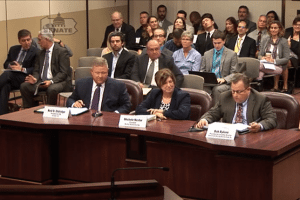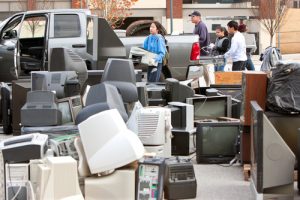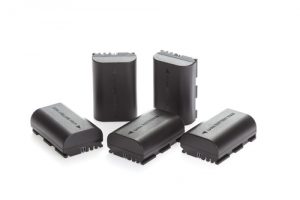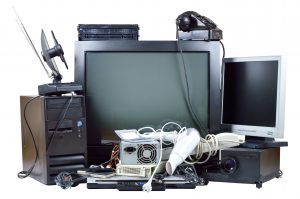
Lawmakers hear testimony from Ned Eldridge of eLoop (left), Michele Nestor of Nestor Resources and Bob Bylone of the Pennsylvania Recycling Markets Center.
Manufacturers say proposed changes to Pennsylvania’s e-scrap program would make it the worst in the country from an OEM perspective. Proponents, however, note the bill fixes dire problems that have led to rampant CRT dumping statewide.


 Regulators say 1.6 million pounds of computers and monitors were recycled through the Oklahoma state program last year, the lowest weight in six years.
Regulators say 1.6 million pounds of computers and monitors were recycled through the Oklahoma state program last year, the lowest weight in six years. Rhode Island’s e-scrap law received some updates this month, requiring certain manufacturers to join the state-run collection program while allowing more flexibility for OEMs running independent plans.
Rhode Island’s e-scrap law received some updates this month, requiring certain manufacturers to join the state-run collection program while allowing more flexibility for OEMs running independent plans.
 Proposed legislation dramatically overhauls Pennsylvania’s e-scrap program, adding a point-of-sale fee on certain devices and making manufacturers financially responsible for end-of-life management of all devices collected under the law.
Proposed legislation dramatically overhauls Pennsylvania’s e-scrap program, adding a point-of-sale fee on certain devices and making manufacturers financially responsible for end-of-life management of all devices collected under the law. Last year, lawmakers failed to pass legislation reforming Pennsylvania’s electronics recycling program. With the introduction of a bipartisan bill this year, some of them want to take another go at it.
Last year, lawmakers failed to pass legislation reforming Pennsylvania’s electronics recycling program. With the introduction of a bipartisan bill this year, some of them want to take another go at it. A battery stewardship group in North America has launched a campaign with information on collecting and shipping batteries safely.
A battery stewardship group in North America has launched a campaign with information on collecting and shipping batteries safely. As New Jersey regulators implement changes to the state’s electronics recycling law, they say they have no intention of creating a statewide standard plan, according to the leader of a recycling group in the state.
As New Jersey regulators implement changes to the state’s electronics recycling law, they say they have no intention of creating a statewide standard plan, according to the leader of a recycling group in the state. Illinois Gov. Bruce Rauner will soon have to decide whether to sign off on two bills that would substantially transform the state’s e-scrap program.
Illinois Gov. Bruce Rauner will soon have to decide whether to sign off on two bills that would substantially transform the state’s e-scrap program. Most people agree electronics should be recycled rather than thrown away, but consensus quickly evaporates when discussing how the costs should be paid.
Most people agree electronics should be recycled rather than thrown away, but consensus quickly evaporates when discussing how the costs should be paid.